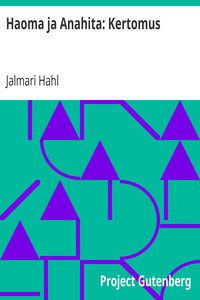| Summary |
"Haoma ja Anahita: Kertomus" by Jalmari Hahl is a novel written in the late 19th century. The narrative unfolds in a mystical setting, steeped in Zoroastrian themes and traditions, focusing on the life of Haoma, a young Persian priest, as he grapples with his spiritual journey and the contrasts between ancient beliefs and the prevailing Islamic influence of his time. The novel explores concepts of purity, devotion, and the struggle between good and evil through the eyes of Haoma. The opening of the story introduces Haoma as he returns home through the majestic Elburz mountains, reflecting on the beauty of nature while invoking the blessings of Ormuzd, the Zoroastrian deity. He has been hunting and is weary from his endeavors, yet finds solace in the purity of his thoughts and surroundings. Upon reaching his humble abode, he engages in rituals to maintain the sacred fire, a symbol of purity and divine presence in Zoroastrianism. The atmosphere is rich with sensory details, from the fragrance of the mountains to the quiet companionship of his loyal dog, Kerivan. As Haoma contemplates his fate and the burdens of his people, he dreams of revitalizing Zoroaster's teachings, setting the stage for his upcoming journey and the challenges he will face in reconciling his beliefs with a changing world. (This is an automatically generated summary.)
|

